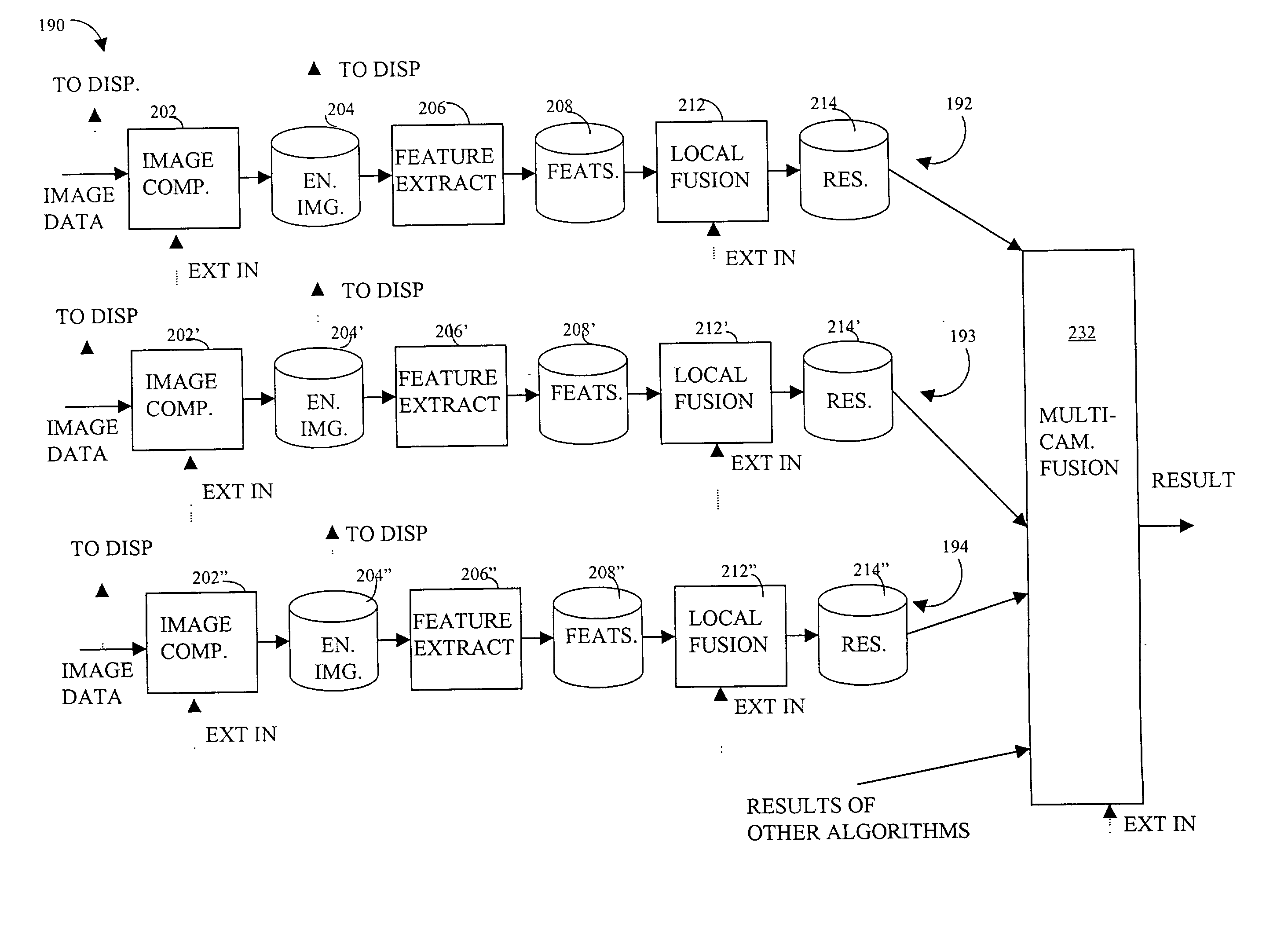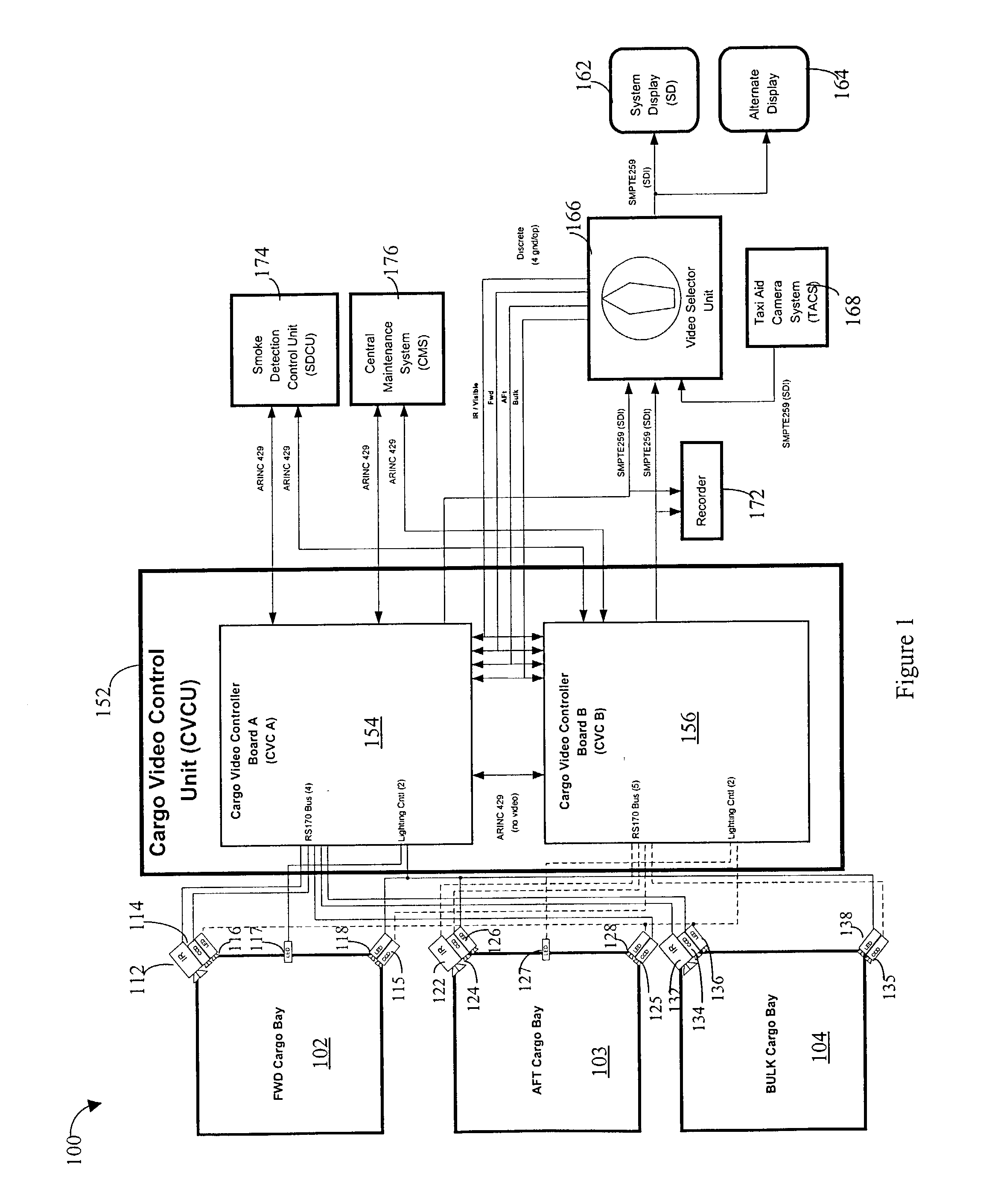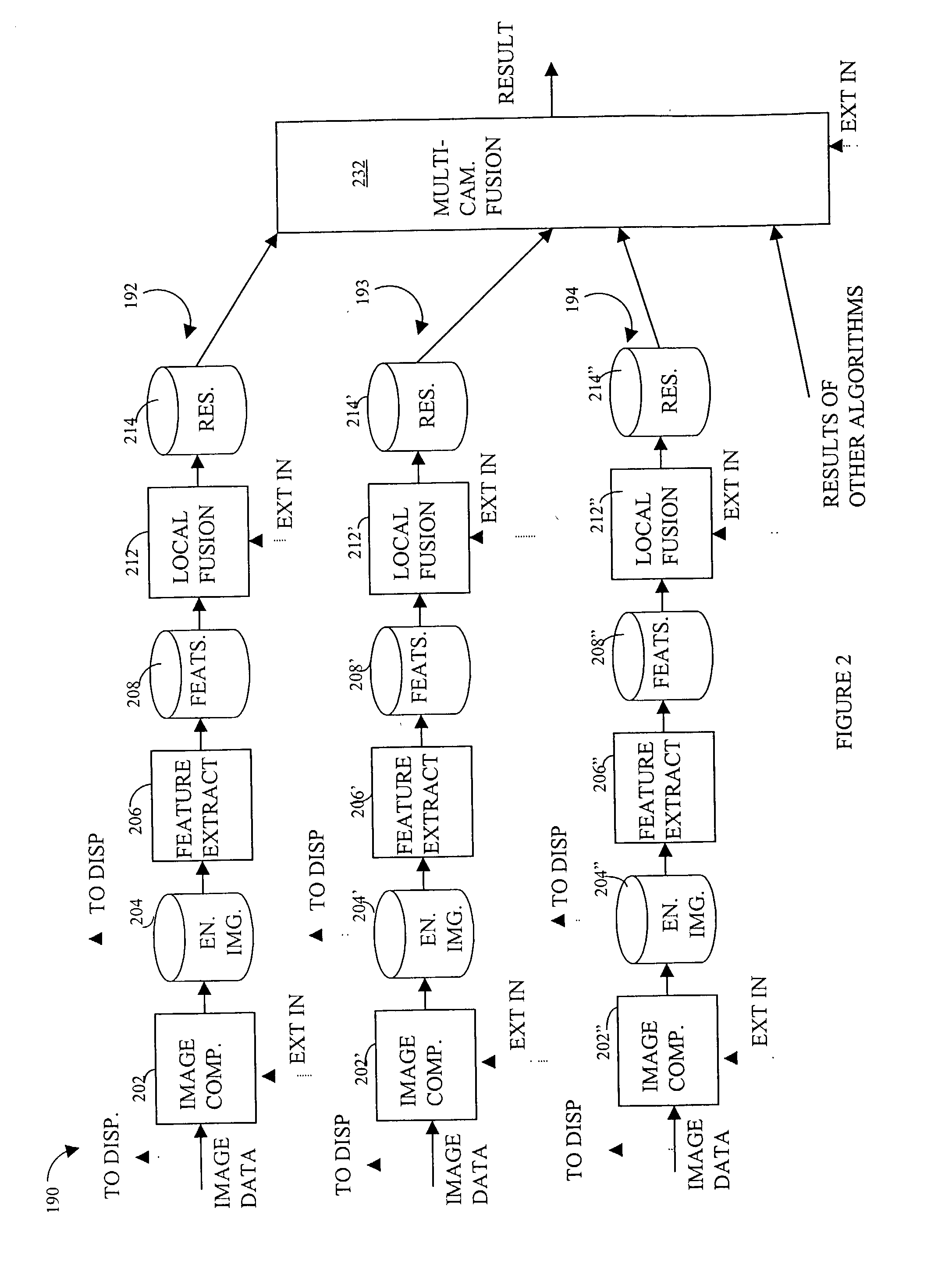Detecting fire using cameras
a technology of fire detection and cameras, applied in the direction of fire alarms, fire alarm radiation actuation, instruments, etc., can solve the problems of high false alarm rate of fire- and smoke detection systems currently installed in aircraft, and the questionable prospect of safe take-o
- Summary
- Abstract
- Description
- Claims
- Application Information
AI Technical Summary
Problems solved by technology
Method used
Image
Examples
Embodiment Construction
[0039] Referring to FIG. 1, a diagram 100 shows a system for monitoring and automatic detection and verification of fire within aircraft. The system described herein may be seen as a particular application of a more general Autonomous Vision System (AVS) which is a concept for a family of products. The AVS provides a user with a tireless automated surveillance capability to monitor various elements of the aircraft integrity. The system may be used in applications where surveillance is needed and simple decisions for immediate corrective actions are well defined. Most of the hardware and software described herein is expandable to various applications of the AVS where analysis of "visual" phenomena is expected.
[0040] The system monitors a plurality of aircraft cargo bays 102-104 to detect / verify the presence of fire. The cargo bay 102 includes an IR (infrared) camera 112, two CCD (charge coupled device) cameras 114, 115, and a plurality of LED (light emitting diodes) sources 116-118 t...
PUM
 Login to View More
Login to View More Abstract
Description
Claims
Application Information
 Login to View More
Login to View More - R&D
- Intellectual Property
- Life Sciences
- Materials
- Tech Scout
- Unparalleled Data Quality
- Higher Quality Content
- 60% Fewer Hallucinations
Browse by: Latest US Patents, China's latest patents, Technical Efficacy Thesaurus, Application Domain, Technology Topic, Popular Technical Reports.
© 2025 PatSnap. All rights reserved.Legal|Privacy policy|Modern Slavery Act Transparency Statement|Sitemap|About US| Contact US: help@patsnap.com



